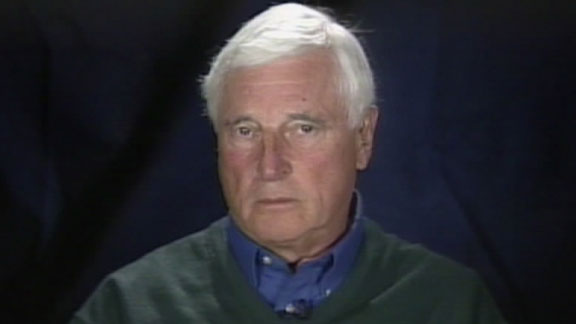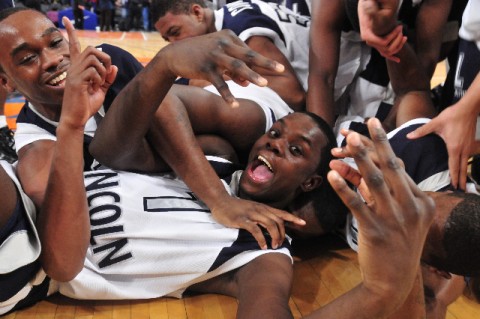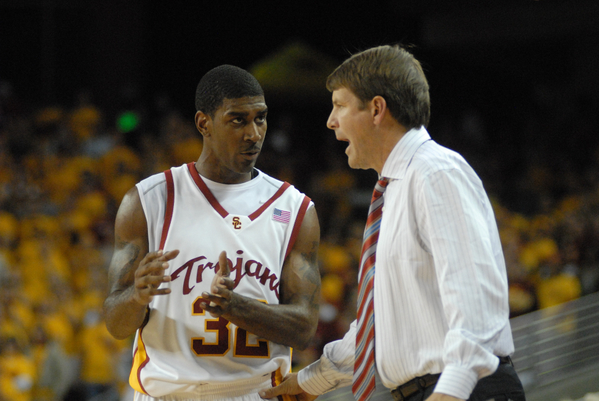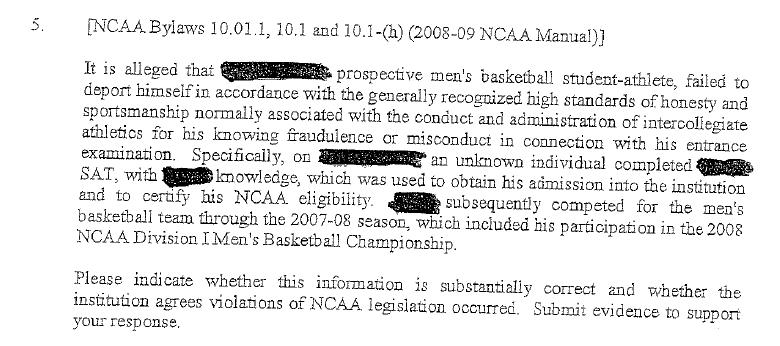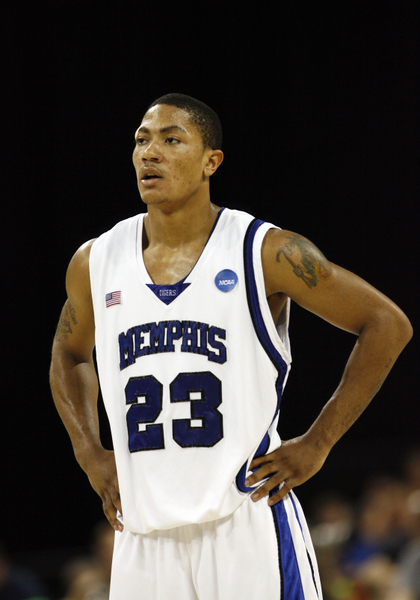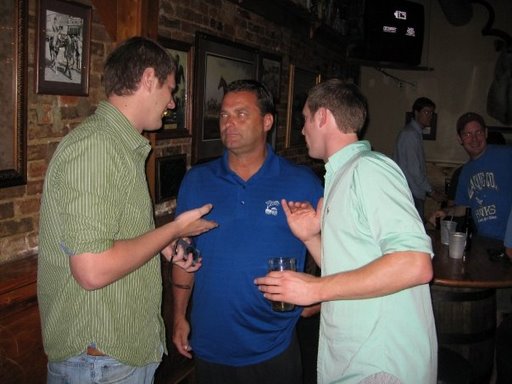Memphis responded to the NCAA’s allegations against their basketball program, and surprise of all surprises, the UM athletic department doesn’t believe that it should be punished even if the NCAA stands by its position that Derrick Rose cheated on his SAT exam to gain his collegiate eligibility.
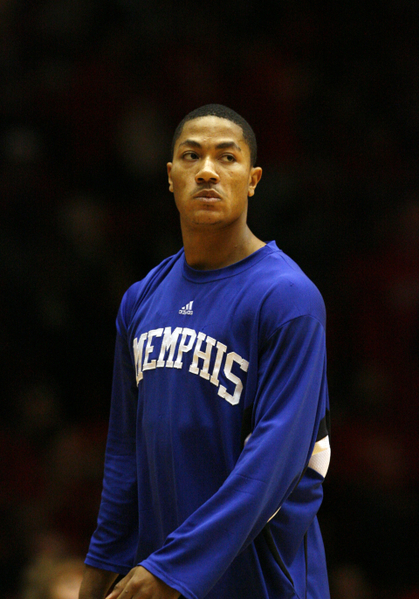
In a wide-ranging letter dealing with allegations involving both the women’s golf as well as the men’s basketball program, University Counsel Sheri Lipman revealed that there were rumors involving Rose’s ACT test score being fraudulent (remember, the NCAA’s allegation involves the SAT) prior to his only season as a Tiger. This is what those lawyer types might call “notice.” Yet, the Memphis athletic department determined through undoubtedly probing interviews with Rose himself and the coaching staff (whaaa??) that these rumors were unfounded. Furthermore, the school claims that it attempted to get copies of materials from the applicable testing service, but was “unable to do so.”
Here’s an idea. You could have had Rose produce the ACT information, and if he is unable to do so, as it were, suspend him until he does so. That could have, at worst, solved the issue involving the rumor, and at best, put the issue to bed AND provided considerable cover in the form of due diligence when Mr. NCAA came knocking on the door a year-and-a-half later. But Memphis didn’t do that. We’d be very interesting in learning why not.
Getting back to the invalidated test score at issue here – the SAT – according to Memphis, the NCAA’s sole evidence that Rose had a stand-in take this test for him comes down to a forensic examiner’s review of his handwriting. This review determined that Rose “probably” did not write the paragraph that the ETS uses to verify identity. But according to Dana O’Neil’s reporting at ESPN.com, ETS only invalidates scores when two of the following three pieces of evidence are present in an examination: 1) handwriting comparisons; 2) comparisons to people seated nearby during the exam; and, 3) substantial jumps in scores. We already know that the ETS (and the NCAA) is relying on #1, so we’re probably also looking at #3 as the other piece of evidence, and if you know anything about statistical probability, there’s virtually no chance that if Rose scored something like a 600-650 on a previous SAT administration, he then jumped up to a 950-1000 to gain eligibility.
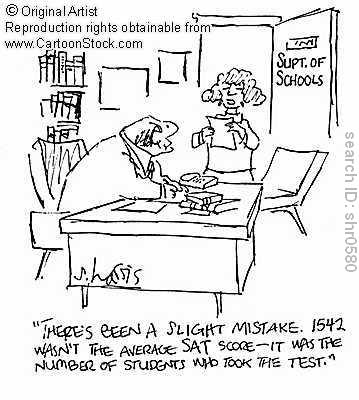
All that said, Memphis is taking the painted corner position that, even if Derrick Rose cheated on his SAT, the program could not have known nor should it have known about such a fraud perpetrated on humanity. In other words… sorry if Rose cheated in high school, but how were we to know? – we didn’t find out about the allegation until after he was already gone. If Memphis is acting in completely good faith here, this is a fair argument. But the only way we’re going to presume good faith is if we see more credible evidence that the university made attempts to get to the bottom of the ACT issue, and if they did no such thing, then they don’t deserve the benefit of the doubt here. Where there’s smoke there’s fire, and if Memphis only scratched the surface of investigation in order to get Rose into school and eligible, then we don’t want to hear any complaining later if they’re nailed for looking the other way.
As for the other allegation involving the Memphis program, of particular comedic value is the Memphis response that the free hotel and plane trips provided to Derrick Rose’s brother, Reggie, were inadvertant administrative mistakes that “could have occurred for any member of the public traveling with the men’s basketball team.” Right, because universities and athletic departments in particular are in the regular business of accidentally allowing thousands of dollars in freebies to be given to members of the public – especially, as it happens in this case, when the public is none other than the star player’s brother! This is the less hot-button of the two major basketball allegations in this complaint, but there’s not much defensible here.
It’ll be very interesting to see what evidence the NCAA presents to combat these responses from Memphis. Saturday is the hearing, and the university should expect to hear something later this summer. It says here that UM isn’t going to like what it hears.
Update: Gary Parrish is reporting that Robert Dozier also had a “fishy” SAT which precluded his entrance into Georgia in 2004, and we’ve already discussed Doneal Mack’s rejection from Florida based on a test score issue. Are there others?





























